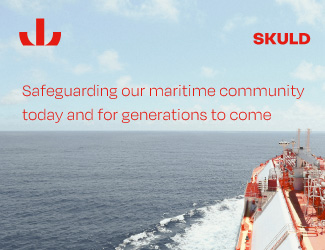German research firm BMTI has released its new study »Short Sea on the Move[ds_preview]«. HANSA talked to editor and co-author Ben K. Perry about the prospects for the sector.
How is the sector »moving« ahead then? Is there major fleet renewal on the cards?
Ben K. Perry: Short sea has a strong upside for fleet renewal for a variety of reasons – static fleet growth throughout the 2000s, an ageing fleet and new environmental regulation to name a few. Shipping banks have been too risk-averse, but this is changing with some Nordic banks and alternative equity providers more willing to take on projects with small owners. Given today’s orderbook, we expect newbuilding deliveries of circa 3% (by tonnage) in the next 3 years. Overall, the fleet is likely to contract, though, because of increased demolition.
The Covid-19 crisis sent freights and vessel earnings down to extreme lows. Will that spur more recycling?
Perry: Demolition of short sea vessels averaged about 600,000 dwt worldwide in the early 2010s, in the late 2010s (2015-2019) it fell to around 200,000 dwt annually. It has yet to bounce back from that level as market prices for scrap tonnage have been judged too low by many owners. With cargo demand set to stay subdued in 2020, the pace of demolition could well accelerate. However, the new EU Ship Recycling Regulation (EU ships to be recycled at EU-certified yards) raises the barrier for owners.
How do you judge the earnings prospects in the medium run opportunities, risks?
Perry: Freights are now at a base level of where coaster trades can realistically exist, now the only direction is up. Given the relative inelasticity of short sea freights, a recovery in demand for trans-European commodities would translate directly into increased freight earnings. Our medium-term forecast is cautiously optimistic if only for the fact that extreme lows require extreme recoveries. The EU is also actively supporting the sector with a number of financial initiatives. There is reason to see the pandemic as a catalyst for necessary changes to be implemented more rapidly than previously expected.
BMTI has been monitoring fleet distribution by owner country over the years – any notable shifts?
Perry: China is the biggest owner of short sea tonnage with nearly 1,000 vessels (3,000-12,000 dwt). It is also the most active buyer today. Looking at Europe, Germany takes its traditional role as biggest owner with over 600 ships, followed by Turkey, Russia, the Netherlands, Norway and Ukraine. As per data collected by BMTI, Turkish buyers were most active in the second-hand market between 2012 and 2016. From 2016 to 2019, activity was led by Scandinavian and German buyers.














